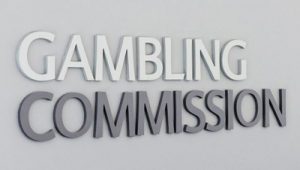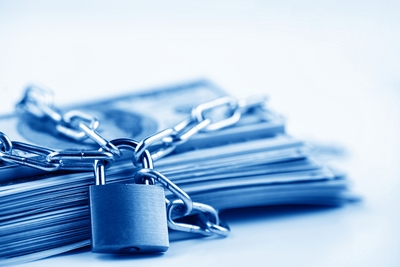 This has to be one of the most commonly asked questions in the industry. People are always sceptical about bookmakers and they are even more wary about betting online.
This has to be one of the most commonly asked questions in the industry. People are always sceptical about bookmakers and they are even more wary about betting online.
What you need to remember is that people have the same levels of scepticism about pretty much all online outlets. You don’t need to search very far to find tales of people’s data being leaked or banking information being hacked. You know how many spam emails you get trying to catch you out each day, and you’re ever wary of clicking links you don’t recognise.
Well using a licenced online bookmaker is just as safe as doing an online grocery shop through a well-known supermarket, if not safer. There are many legislations and regulations in place to ensure that players funds are secure, and bookmakers have to work really hard in order to get licensed.
Gambling is one of the most heavily regulated industries in the UK, which also makes it one of the most secure. The industry is now worth over £5bn every year so you better believe the government keeps a close eye on it.
That being said, there are rogue traders in every industry and gambling is no exception. In this article, we will be looking at what measures bonafide bookmakers need to take in order to be compliant, and what measures you can take yourself to avoid the scammers and make sure that you are betting with a legitimate outfit.
Legislation: A Brief History

Gambling has been legal in the UK since 1960. Prior to that, it was legal for bookmakers to open trackside betting setups at dog racing and horse racing tracks, but gambling was actually illegal outside of these events.
This caused a huge headache for the government and the police as underground betting outfits were rife. It had gotten to the point where it was almost impossible to police and the time and money that was being spent on it was rapidly increasing.
In 1961 the first Betting, Gaming and Lotteries act came into existence and with it, the legalisation of gambling outside of sporting events. This saw a huge upturn in the number of betting shops on our high streets and the industry started to flourish.
Betting shops, rather than race tracks, became the main port of call for those wanting to place a bet, and it stayed this way right up until the turn of the Millennium. By the start of the 21st century, many companies were turning to online betting platforms in order to reach a far wider customer base. The internet would revolutionise the betting industry.
The Modern Era
 Bookmakers could now offer a much wider range of bets, markets and coverage, resulting in huge growth for the industry. It also meant that new legislation was needed in order to keep with the changes and the increase in online betting.
Bookmakers could now offer a much wider range of bets, markets and coverage, resulting in huge growth for the industry. It also meant that new legislation was needed in order to keep with the changes and the increase in online betting.
To oversee this, the government created the UK Gambling Commission in 2007, and it was their role to make sure that the new legislation was suitable for 21st Century betting. It would be the Gambling Commissions main aim to oversee the following:
- Distance the industry from any crime.
- Fair and open conduct for gambling.
- Protection of children and vulnerable people from gambling.
The process to obtain a license became much stricter, and as a result a lot of companies were forced to close their doors as they didn’t meet the new standards.
The changes massively benefitted the punter, though, ensuring that they were playing in a much safer environment and giving them a governing body to fall back on in case anything went awry.
Closing the Loopholes
 As with many of these government acts, however, eventually they run their course and become irrelevant to modern day betting. The 2005 act failed to take into account offshore hosting for gambling companies and the rise of mobile betting.
As with many of these government acts, however, eventually they run their course and become irrelevant to modern day betting. The 2005 act failed to take into account offshore hosting for gambling companies and the rise of mobile betting.
As a result, the 2014 Gambling Act was introduced.
The main outline for this act was to prevent betting companies being located offshore in tax havens while still serving UK based punters, yet paying no tax to the UK Government. So, whilst tax used to be paid on a point of supply basis – meaning you paid tax in the place you were based – it was changed to a point of consumption tax. This meant that companies paid tax on any income from players based in the UK, and the tax rate that was agreed was set at 15%.
However, the goalposts shifted again in October 2019 when the tax rate for ‘games of chance’ jumped from 15% up to 21%. The idea was to try and minimise the amount that bookmakers and casinos promote these games given that they cause some of the biggest impact surrounding problem gambling.
Protecting Your Money
 The ways in which we bank with bookmakers has changed a huge amount over the years, and all for the better. There have been horror stories in the past of bookmakers going broke, taking large lumps of player funds with them.
The ways in which we bank with bookmakers has changed a huge amount over the years, and all for the better. There have been horror stories in the past of bookmakers going broke, taking large lumps of player funds with them.
Today, your funds are much safer and it’s highly unlikely that your funds would be at risk should anything happen to a bookmaker. This is because bookmakers operating in the UK have to keep all player funds in an account that is separate to their main bank account, and that is written in law.
This process is called ‘ring-fencing’ and is designed to protect players’ money if a bookmakers business goes belly up. If player funds were in a bank account registered to a bankrupt business, then liquidators would be able to state that these monies were business assets or cash in the bank, and then use them to pay off debtors.
However, now that player funds are kept in a separate ‘ring-fenced’ account, then the money won’t be legally available as it doesn’t officially belong to the failing business. In theory at least.
But, and this is a big but, there are different levels of protection that each bookmaker has to adhere to by law. These include:
- Basic – No extra protection and money would be included as part of the business.
- Medium – Insurance set up for money to be paid back if accounts are frozen.
- High – Totally separate bank account to the business with no links should the bookmaker go under. Controlled independently, customers will get money back.
As you can see, you need to make sure that you are aware of what level of protection you have at your chosen bookmaker. The majority will fall into the medium/high band, but there are still quite a few that will be in the basic band, which means your funds could be at risk.
Tips
 You may be pretty surprised to hear that some of the biggest bookmakers in the industry only have basic cover. These include BetVictor, Betfred, and William Hill. All bookies have to state the protection level in the terms and conditions though, so make sure that you check to see what cover your bookmaker has.
You may be pretty surprised to hear that some of the biggest bookmakers in the industry only have basic cover. These include BetVictor, Betfred, and William Hill. All bookies have to state the protection level in the terms and conditions though, so make sure that you check to see what cover your bookmaker has.
The best bit of advice that we can give is to make sure that you don’t keep too much money in your betting account at any one time. You can keep a bankroll of funds in either a separate bank account or even a PayPal account which is widely accepted these days and transfers instantly, both these options offer a much more secure platform than any bookmaker can.
Licensing
Licenses are the final part of the jigsaw for any bookmaker that wants to legally operate within the UK. Since the introduction of the UK Gambling Commission, the process to obtaining one has become very difficult.
They are extremally strict on who they allow into the industry, all in the attempt to make sure that people are as safe as possible when betting online. There are four licenses in total:
- Operating license
- Personal management license
- Personal functional license
- Premise license (obtain by local licensing authority
 The operating license will be based on what sort of features the bookmaker wants to offer. For example, if they want to include online betting and online casinos then they will need to apply for a license for each of those. If bookmakers operate both online and via betting shops, then they will need a remote (online) license and a non-remote license, even if they are providing the same bet types and markets at each.
The operating license will be based on what sort of features the bookmaker wants to offer. For example, if they want to include online betting and online casinos then they will need to apply for a license for each of those. If bookmakers operate both online and via betting shops, then they will need a remote (online) license and a non-remote license, even if they are providing the same bet types and markets at each.
In order to keep away time wasters there is quite a high fee for each license. Fees are charged yearly and are based on the gross annual yield of that company. It won’t be uncommon for some of the bigger players to be paying several millions in operating licenses every year.
 The personal management license is more to do with the people behind the company. So, whilst the Operating license makes sure that you are doing everything you can to conform to industry standards, this license looks at how you plan to run your business.
The personal management license is more to do with the people behind the company. So, whilst the Operating license makes sure that you are doing everything you can to conform to industry standards, this license looks at how you plan to run your business.
It will require all those involved with the company to take part, ranging from the founder/CEO right down to the marketing and management levels.
It also includes a blacklist, where people who have abused the system or aren’t fit for this license will be listed.
 The personal functional license is for all staff within the company. Less so the CEO’s and people who run the company, and more the workforce itself.
The personal functional license is for all staff within the company. Less so the CEO’s and people who run the company, and more the workforce itself.
This might be a dealer, croupier, cashier, inspector, pit boss, security, surveillance staff, or anyone else you might meet while playing at a casino.
Basically, anyone on the front line that is dealing with customers or handling money taken for bets.
 Finally, the premises license is the only one that isn’t issued by the Gambling Commission, and you can probably tell by the name what it is for.
Finally, the premises license is the only one that isn’t issued by the Gambling Commission, and you can probably tell by the name what it is for.
This is the license that the bookmaker will need to legally obtain from their local council if they are looking to set up a betting shop.
Some areas are more welcoming of betting shops than others, so it’s not a foregone conclusion that you can just open a betting shop wherever you want. The council will consider various factors before they sign off on a request.
How to Check a Bookmaker’s Credentials
The first port of call is the UKGC website. Here you will be able to find a heap of information about all of their registered bookmakers.
This link here will take you to the Public Register where you can not only look up information about a certain company but also information on a specific person that may be related to said company.
Just type in the name of the bookmaker in question and it should pull up everything you need to know. This is what a return for Betvictor looks like:

As you can see, it shows they have an active license and they are registered with the UK Gambling Commission. It will also give you a principal address which can be tricky to find with a lot of bookmakers.
If there have been any issues with the company in question such as fines or bad practice, these will also be listed here in detail.
The UK Gambling Commission also recommend the following when checking if a bookmaker is legit or not:
- Check whether the website is displaying a British Gambling Commission licensed status.
- Check whether you can click directly through to our public licence register and if it shows the licence of this business.
- Check whether the details on the licence (including activities and website domain names) match the public licence register.
- Check the terms and conditions for each gambling product – this will help you understand exactly what you are betting on so you can make an informed decision.
- Check for any restrictions on introductory offers or bonuses (such as a minimum spend level before the bonus is paid).
The final thing to note is that while nothing is perfect and any online operation is increasingly difficult to police, the betting industry has never been safer, nor has it even been more geared towards improving online safety.
